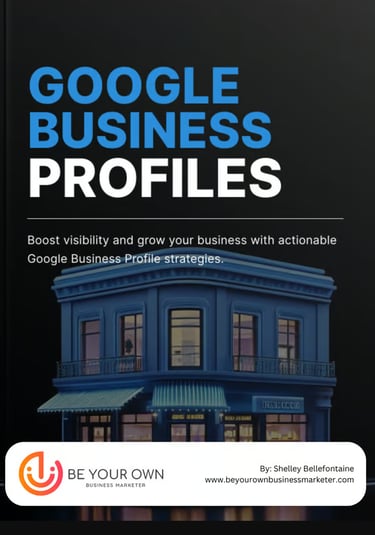SEO Basics for Tourism: How to Get Found Online
In the highly competitive tourism industry, having an online presence is no longer a luxury – it’s a necessity. But simply having a website is not enough. To truly succeed and attract the right customers, your tourism business needs to be discoverable. This is where Search Engine Optimization (SEO) comes in.
WEBSITE & SEOSTRATEGY & INSIGHTS


SEO is the practice of optimizing your website so that it ranks higher on search engine results pages (SERPs), such as Google. The higher your site ranks, the more likely it is that potential guests will find your business. In this blog post, we’ll dive into the basics of SEO for tourism operators and explore how you can get found online by people actively searching for experiences just like yours.
What is SEO and Why Does It Matter?
SEO is a set of strategies designed to improve the visibility of your website on search engines. When a potential customer searches for terms like “best whale watching tours in Nova Scotia” or “places to stay in Halifax,” they typically click on the links that appear at the top of the results page. If your tourism business isn’t showing up on that first page, you could be missing out on significant traffic and bookings.
In today’s digital age, most travellers turn to Google (or other search engines) to research destinations, accommodations, activities, and experiences before making decisions. SEO helps ensure that your website is optimized so that it ranks higher in search results, making it easier for customers to find and book with you.
1. Keyword Research: The Foundation of SEO
The first step in SEO is understanding what people are searching for when they’re looking for services like yours. This is where keyword research comes in. Keywords are the terms or phrases that users type into search engines to find businesses, products, or services.
For example, a sea tour operator in Nova Scotia might focus on keywords like “Nova Scotia whale watching,” “sea kayaking tours Nova Scotia,” or “Nova Scotia coastal adventures.” These keywords are what people are most likely to search when looking for experiences in your area.
To get started with keyword research:
Use tools like Google Keyword Planner to find relevant keywords for your tourism business.
Focus on long-tail keywords – longer, more specific phrases that attract people who are further along in their decision-making process (e.g., “best family-friendly tours in Halifax”).
Consider local SEO – include your location in the keywords (e.g., “Halifax historical tours”).
Once you have your target keywords, use them strategically across your website, including on your homepage, service pages, and blog content.
2. On-Page SEO: Optimizing Your Website Content
On-page SEO refers to optimizing elements of your website that you control, such as content, images, and meta tags. Here are a few key areas to focus on:
Title Tags and Meta Descriptions: Your title tags and meta descriptions are what appear in search results, so make sure they are compelling and include your target keywords. For example, a title tag for a sea tour business might read, “Whale Watching Tours in Nova Scotia – Book Your Adventure Today!”
Headings and Subheadings: Use clear headings (H1, H2, H3) throughout your content to make it easy for both visitors and search engines to understand the structure of your pages.
Content Quality: High-quality, relevant content is key. Focus on providing detailed information about your services, experiences, and destinations. Write for both your audience and search engines by incorporating keywords naturally into the text.
Images and Alt Text: Use high-quality images to showcase your services, but don’t forget to optimize them for SEO. Add descriptive alt text to each image that includes relevant keywords. For example, “sunset kayak tour in Halifax, Nova Scotia.”
3. Local SEO: Getting Found in Your Community
For tourism businesses, local SEO is particularly important because most of your customers are likely to be searching for experiences within a specific area. Here are some strategies to improve your local SEO:
Claim and Optimize Your Google Business Profile: As mentioned in the previous blog, having a Google Business Profile is a must for local SEO. Be sure to add accurate information, such as your business name, location, phone number, hours, and website. Also, encourage customers to leave reviews on your Google profile.
{HINT: Get our Free Guide for Google My Business Optimization from our affiliate service at BeYourOwnBusinessMarker.com}
Local Listings and Directories: Ensure that your business is listed in local directories like Yelp, TripAdvisor, and Nova Scotia-specific tourism directories. Consistent and accurate listings help improve your rankings on local search results.
Location-Specific Keywords: Include your location in key parts of your website, such as your title tags, meta descriptions, and headers. For example, “Best Coastal Adventures in Cape Breton, Nova Scotia.”
4. Mobile Optimization: A Must for Tourism Businesses
More and more travelers are relying on their smartphones to search for experiences while on the go. In fact, over 60% of all searches are made from mobile devices, so it’s essential that your website is mobile-friendly.
Google uses mobile-first indexing, meaning it prioritizes mobile-optimized websites in search rankings. To ensure your website is mobile-friendly:
Use responsive design, which automatically adjusts your website’s layout depending on the size of the screen.
Optimize load times – a slow website can turn potential customers away.
Make navigation easy for mobile users, with clear menus and clickable buttons.
5. Backlink Building: Boosting Your Website’s Authority
A backlink is a link from another website to your own. Backlinks are an important ranking factor in SEO because they signal to search engines that your website is trustworthy and authoritative. For tourism businesses, building backlinks from reputable sites like travel blogs, local tourism websites, and industry associations can help boost your rankings.
To start building backlinks:
Partner with local bloggers and influencers to feature your services.
Get listed in local tourism guides and directories.
Reach out to local news outlets for features about your business or upcoming events.
6. Track Your SEO Success: Analytics and Adjustments
Once you’ve implemented your SEO strategies, it’s important to track your progress and make adjustments as needed. Google Analytics is a powerful tool that allows you to monitor your website’s traffic, see where visitors are coming from, and analyze how they interact with your site.
Keep an eye on your rankings, page views, and bounce rate. If you notice that certain pages are performing poorly, consider adjusting your content or optimizing it further. SEO is an ongoing process, so it’s important to continually assess and refine your efforts.
Final Thoughts: Start Small, Think Big
SEO can seem overwhelming at first, but by taking it step-by-step, you can start to see significant improvements in your website’s visibility. Whether you're a bed-and-breakfast, a tour operator, or a local restaurant, implementing even basic SEO strategies can help ensure that more potential guests discover your business online.
Start by focusing on keyword research, on-page optimization, local SEO, and mobile-friendliness. Track your results, refine your strategies, and don’t be afraid to ask for help from an SEO professional if needed. The digital world is evolving quickly, and tourism operators who invest in SEO will be well-positioned to succeed in the years to come.
{Free} eBook:
Master Your Local Visibility
With a Google Business Profile
Discover how to transform your Google Business Profile into a powerful tool for visibility, engagement, and sales. Our free 89-page eBook is packed with actionable strategies designed to help you stand out in local searches and attract more customers.
Sponsored by BeYourOwnBusinessMarketer.com
Ready to take your tourism business to the next level?
If you're looking for personalized guidance on marketing strategies, website optimization, or social media growth, let's chat! Book a free, no-obligation consultation with Shelley Bellefontaine, your trusted tourism marketing consultant, and get expert advice tailored to your business needs.



